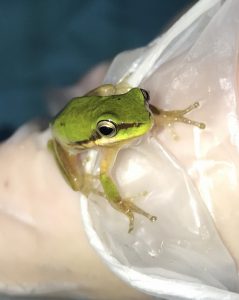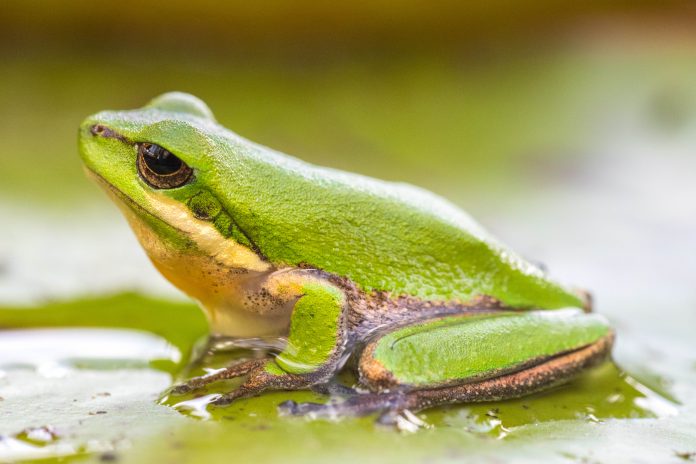A University of the Sunshine Coast study has found out why some female frogs opt for ‘unattractive’ males.
It found too much traffic noise is costing the females better mating opportunities because they cannot hear the calls properly, or are distracted.
The findings are revealed in a research paper released in the scientific journal Acta Ethologica.
Researchers from USC’s Global Change Ecology Research Group said that it could spell disaster for overall reproductive success and population survival in urban frogs if this kind of distraction and behaviour was widespread.
Study supervisor USC Lecturer in Animal Ecology, Dr Dominique Potvin, postdoctoral researcher Dr Alexis Levengood and Honours student Charmaine Schou conducted the research on wild male and female Eastern Sedge frogs (Litoria fallax) in ponds on USC’s campus at the Sunshine Coast.
Dr Potvin said the frog species was commonly found in suburban ponds from northern Queensland to southern New South Wales but rarely in heavily urbanised habitats, making it ideal for investigating potential behavioural traits that may be impacted by noise.
“A female frog’s quality of offspring depends on her ability to locate and ultimately select a suitable mate by responding to his mating call,” she said.
“While it is not the same for all frogs, for the Eastern Sedge species the male that puts more effort into his calls usually has more chance of winning the girl because the higher pitched and faster his calls, the more attractive he is to females of his species.’

“This is probably related to the fact that producing more calls per minute requires more energy, so you need to be in good condition overall – with good food reserves and likely good genes – to produce these calls.”
Follow us on Facebook: www.facebook.com/scnews2020/
In the controlled behavioural experiment, the frogs were presented with simultaneously broadcasted attractive and unattractive calls from opposing directions, once with background traffic noise and once without.
Traffic noise impacted on their selections, with females heading towards unattractive calls more often in search of a mate when traffic noise was being broadcast.
“The traffic noise seemed to have significantly less effect on male frogs, who will usually follow the calls of other males to fight or sneakily mate with females who might be around,” Dr Potvin said.
“The reasons for the poor choices were unclear, however it could be that increased stress caused by the noise was affecting their ability to make good mating decisions,” Dr Potvin said.
Help keep independent and fair Sunshine Coast news coming by subscribing to our free daily news feed. All it requires is your name and email. See SUBSCRIBE at the top of this article.
While some species are known to adjust acoustic signals to communicate more effectively in noisy habitats, this study allowed the researchers to investigate how the receivers of these signals might be impacted by human-generated noise.
“We recommend further experimentation based on our initial findings to gain further understanding of the effects of noise on receivers, especially for species that are highly acoustic,” Dr Potvin said.
“Expanding our understanding should become a priority as frog species, in particular, are under immense pressure from disease, global change patterns and habitat loss.
“Increasing our knowledge about how human-altered soundscapes might be escalating this pressure is crucial for management and conservation.”
This study was financially supported by the Advance Queensland Women’s Research Assistance Program and the Environmental Legacy Foundation.





